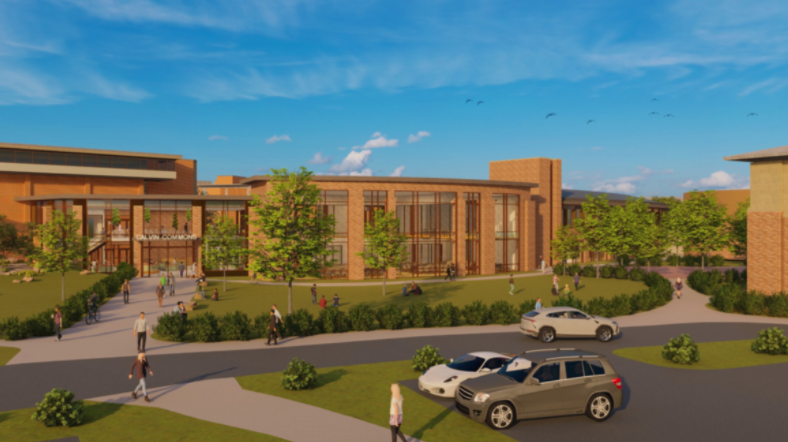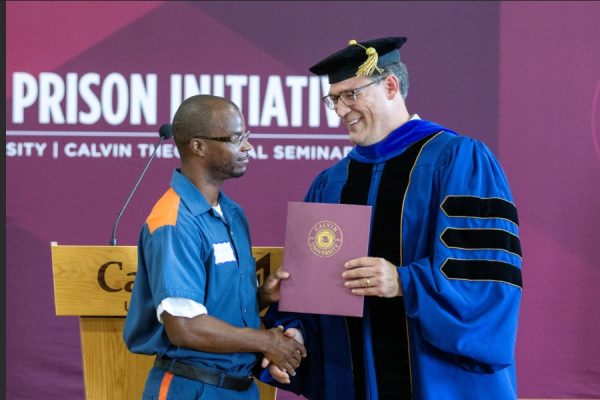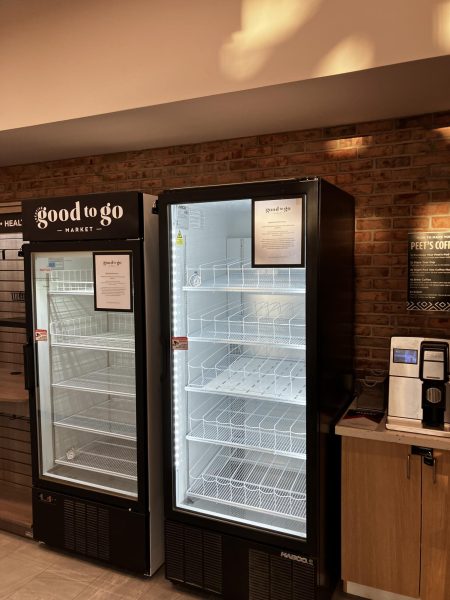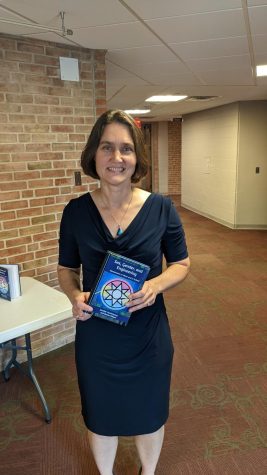Commons Union project still needs $45.5 million in donations to get off the ground
Common’s Union, now renamed the Learner’s Common, is on the docket for construction in the next ten years.
Commons Union, which will replace both dining halls and Commons Annex to act as Calvin’s hub for dining, retail and community life, was first proposed in Calvin’s Campus Master Plan in 2015 as an immediate priority.
“Calvin’s Master Plan had identified the need for a campus union. A few years ago, as we kicked off the design of that building, it quickly became apparent that not only was this project an opportunity to advance the Master Plan, it also allowed us to think strategically about how best to develop physical campus assets that would foster campus-wide connection, promote sustainability and steward fiscal resources well as we look ahead to the 2030 and beyond.” Sarah Visser, vice president for student life, told Chimes in an email.
However, in order to bring Commons Union to life, Calvin needs to raise about $45.5 million in donations. To date, $29.5 million has been raised toward the $75 million fundraising goal for the project. The final sum will be divided into two parts to cover both general expenses and a long-term maintenance endowment; $61 million will go toward the design, engineering, construction and furnishing of the building and the remaining $14 million will go toward the endowment.
But until this amount can be raised, the project is on hold. Russell Bray, director of facilities, oversees the Commons Union project. According to him, “this is an expected part of the project … Everybody knows when they come on board. Once we get to a point, we have to fundraise for the building,” he said. “That’s the point we are in the design; the design process is certainly paused, but it’s so that this other work can happen.”
To raise funding for the project, the Commons Union team has presented the project to the Calvin donor community, focusing on how it will positively impact student experiences. “In addition to the need for more community gathering space and centralization of non-academic student support services, the new Commons Union will save Calvin approximately $1.2 million or more each year in annual operating costs by consolidating our two aging dining halls into one new facility,” Gregory Elzinga, vice president for advancement, told Chimes in an email. Donors and the general public alike can access a virtual tour of the project.
According to Elzinga, he and his team are also open to “exploring other revenue streams which would not have any impact on Calvin’s operational budget.”
“That may include things such as funding tied to sustainable energy use since this new facility will provide enhancements to our efficient use of energy through upgraded systems and the consolidation from two dining halls into one facility,” Elzinga said. According to Bray, sustainable financial solutions include the use of a cogeneration unit, which creates electricity through natural gas. “It’s a great step forward for our sustainability efforts and reducing our carbon footprint,” said Bray.
Despite the fact that Commons Union is being built amid university-wide financial worries, the Commons Union team is optimistic that the project will be a long-term investment for a flourishing campus community.
“The Commons Union is a necessary reinvestment in our aging physical assets on Calvin’s campus … the university can save approximately $1.2 million per year by consolidating our two aging dining halls into the second floor of the new Commons Union. The location, design and daily use of the Commons Union will make this building the crossroads of Calvin’s campus,” said Elzinga.
Visser told Chimes that the cost of developing Commons Union does not come out of the university’s operational budgets. “The Commons Union project is primarily funded by donors; this means that the funding comes out of a different ‘bucket’ of funds (restricted) than the budgets that undergird normal campus departments and operations,” Visser said. She told Chimes that Calvin receives donations directed to specific projects, and such funding is not used for Calvin’s day-to-day functioning experiences.
Once the $61 million needed to build the Commons Union is raised, plans will be made for construction. The project would likely take 18-24 months to complete once construction begins.
“When I envision what I hope to be true once Commons Union is built and operational, I see students, staff and faculty being better connected as a result of new community spaces and dining opportunities, physical spaces that showcase student organizations, better access to student services and a true campus ‘living room’ that reflects the best of who and what Calvin is. In my mind, this is all ‘up side,’” said Visser.









Enoque • Dec 6, 2021 at 6:31 pm
The article was very well prepared, being able to demonstrate how Calvin wants to continue creating spaces that are better equipped to continue serving his students and being a reference. It sure inspires confidence in donors.